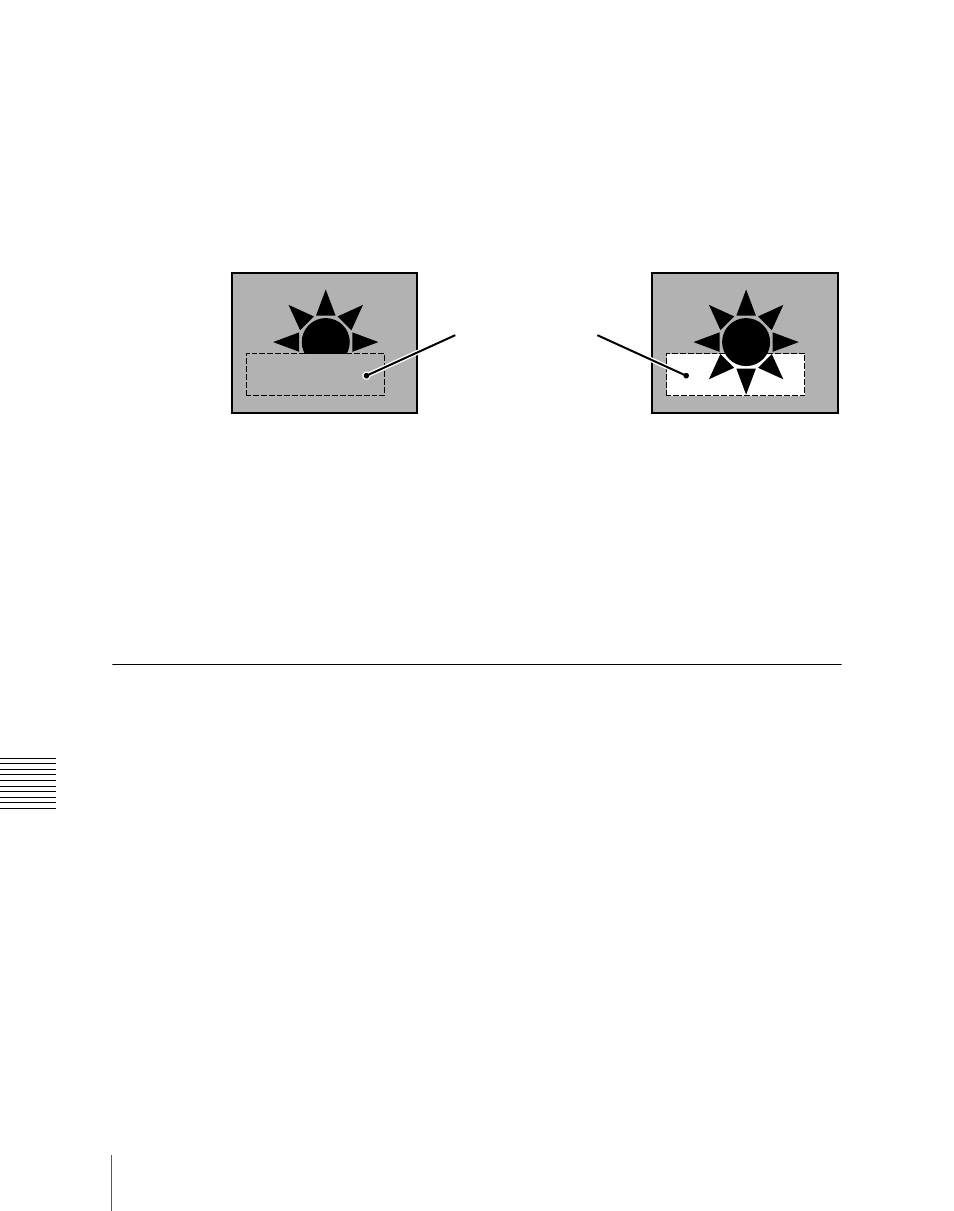Key memory – Sony Multi Interface Shoe Adapter User Manual
Page 156

156
Overview
Chap
For details of masking operations, see “Masks” (pages 177 and 193).
Key mask and background mask
There are two types of mask: a key mask and a background mask.
Key mask:
This masks out a part of the key, which will result in the
background appearing.
Background mask:
This masks out a part of the background, which will result
in the key fill appearing.
Main mask:
This uses the signal from the dedicated box generator provided
on each keyer, or the signal from the dedicated pattern generator as the
mask source.
When the box generator is selected, a rectangular mask is formed.
When the pattern generator is selected, you can select the pattern and apply
modifiers.
Key Memory
The key memory function allows the keyer settings on each cross-point button
to be automatically stored, so that the next time the same cross-point button is
selected these settings are recalled automatically.
There are two modes for key memory: simple mode and full mode.
The parameters stored in each mode are as follows.
Simple mode:
key type, clean mode (including the plane setting for chroma
keying), key position, key inversion, and adjustment values for the
particular key type (Clip, Gain, Density, Filter, etc. This includes color
vector key, key wipe pattern key, and chroma key. However, in the case of
a chroma key, it excludes color cancel, Y balance, foreground CCR,
window, and shadow.)
Full mode:
All settings except transition (the same parameters as simple mode,
Fine Key, key modifiers, mask settings, chroma key detailed settings, and
so on)
Key mask
Masked area (box)
Background mask
